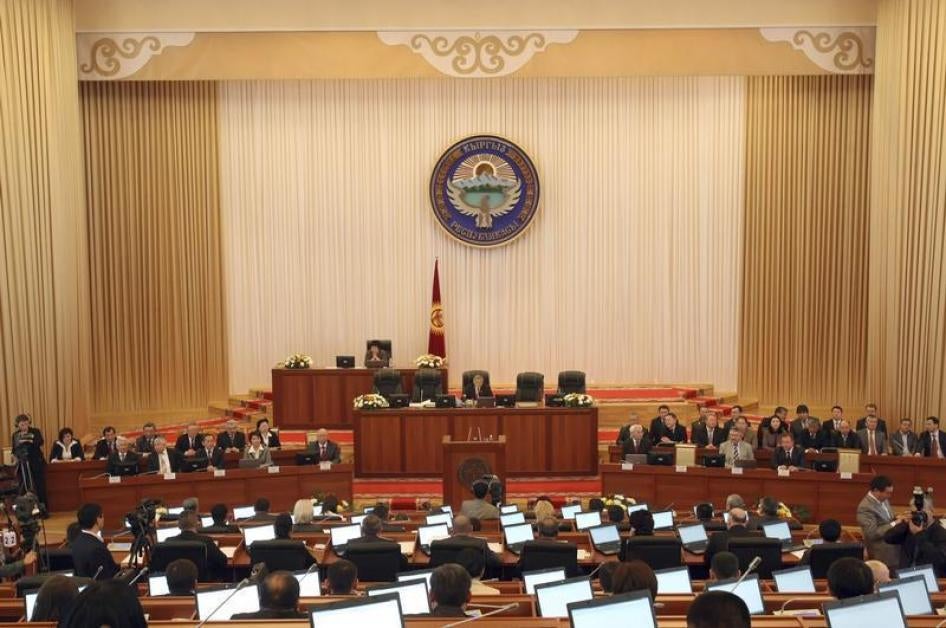Kyrgyz authorities seem determined to amend the country’s constitution despite some strong opposition from within Kyrgyzstan. Legislation that will allow authorities to hold a referendum on constitutional amendments this coming December could go to third and final readings as early as this week, but not without serious misgivings from some deputies and a range of activists, including some of Kyrgyzstan’s most respected human rights defenders.
Critics have voiced concerns about holding a referendum despite the current moratorium on changing the constitution until 2020, and the rushed nature in which the proposed amendments are being pushed through.
In a joint opinion, the Organization for Security and Cooperation in Europe’s Office for Democratic Institutions and Human Rights and
the Venice Commission concluded in August that the proposed constitutional amendments “would negatively impact the balance of powers by strengthening the powers of the executive, while weakening both the parliament and, to a greater extent, the judiciary.”
Indeed, from a human rights point of view, some of the proposed changes are particularly worrying.
For example, the proposals to cut the clause that gives international human rights treaties direct applicability and priority over other international agreements in Kyrgyzstan, and to remove another clause which specifies how Kyrgyzstan must pay damages or make amends if an international rights body judges that it has violated a human right.
Other amendments would interfere with the independence of the judiciary, for example by increasing the role of the president and parliament in making judicial rotations and dismissals. The amendments also propose to specify that a family “is created upon the voluntary union between a man and a woman,” from the current broader wording “people of marriageable age.” The Venice Commission warns this could discriminate against both unmarried couples and same-sex couples.
These proposed changes come shortly after the UN Human Rights Committee ruled in March that the high-profile
human rights defender Azimjon Askarov was tortured in state custody and should be immediately released.
A presidential advisor said on national television afterwards that the committee’s decision showed the need to amend the constitution to “strengthen Kyrgyzstan’s sovereignty and national security.” Kyrgyzstan’s president echoed these
remarks in an interview in May.
Yet even if the constitution is changed, Kyrgyzstan will still be beholden to its human rights commitments under international law. In the meantime, this audacious attempt to dodge its international obligations sends the alarming signal that Kyrgyzstan is willingly backtracking on human rights.









